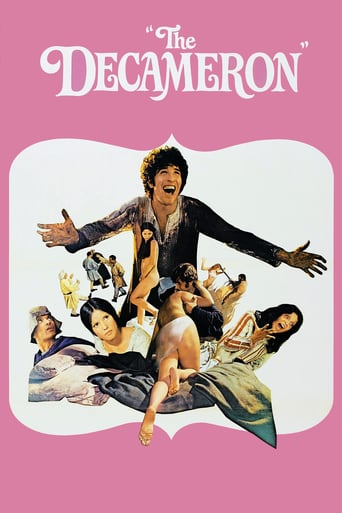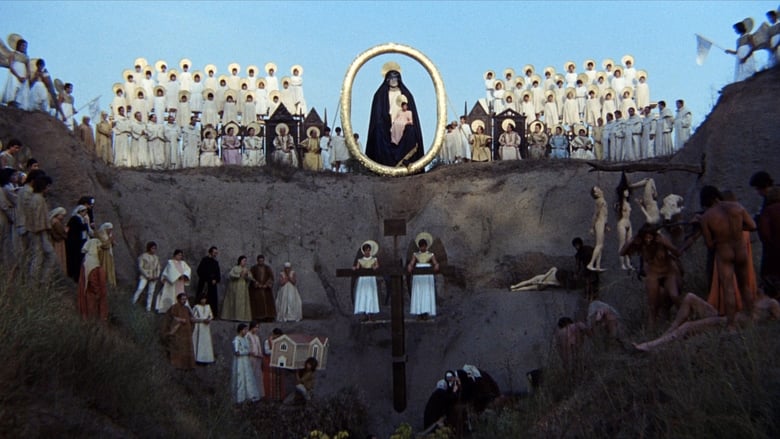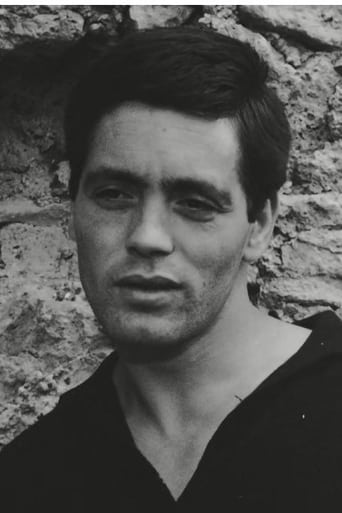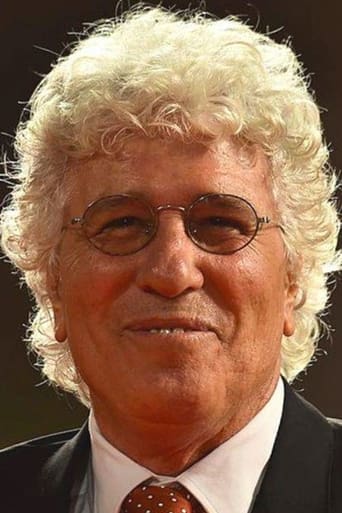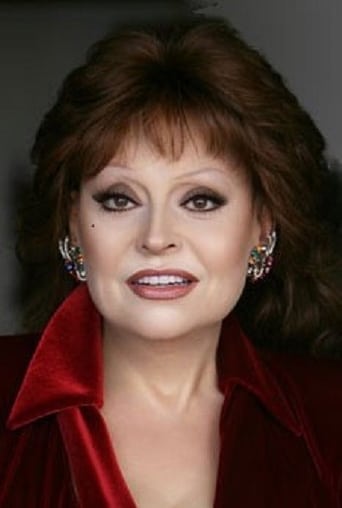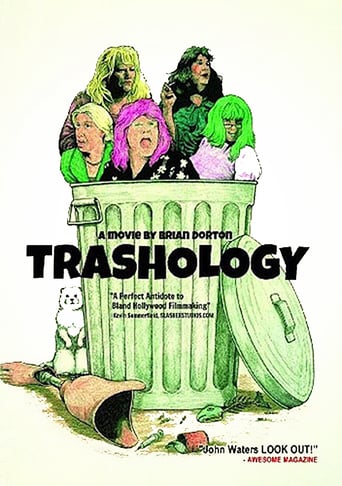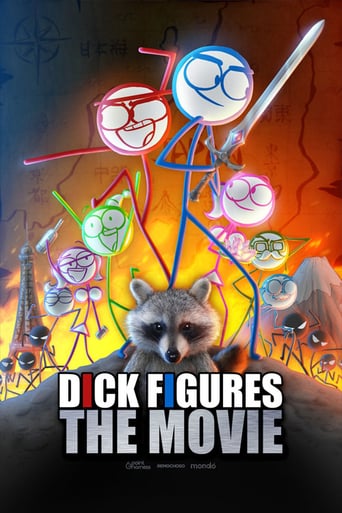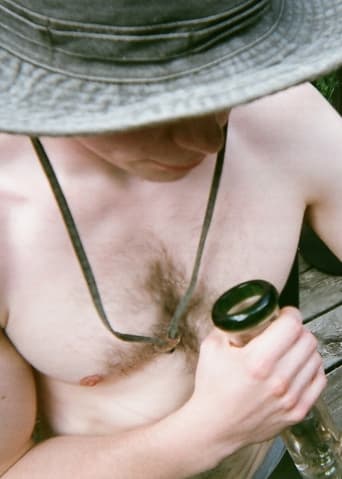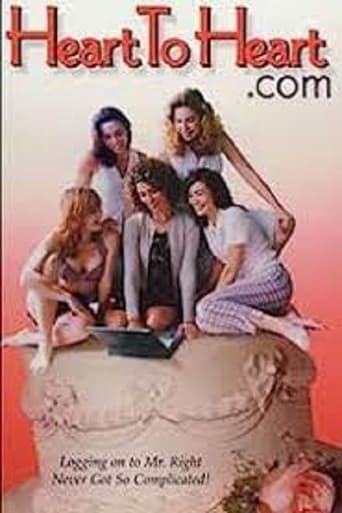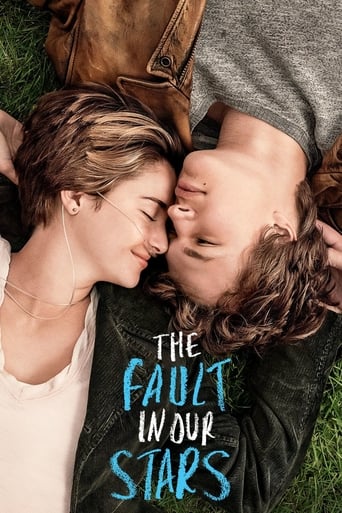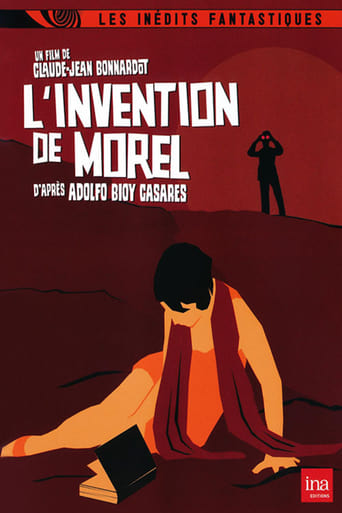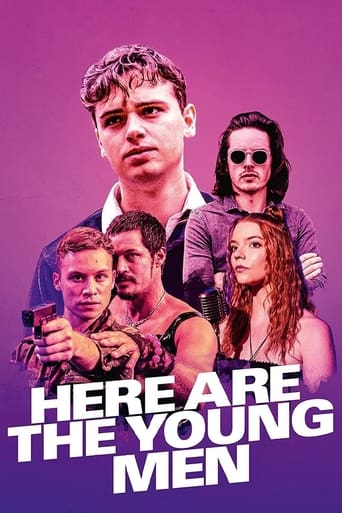The Decameron (1971)
A young Sicilian is swindled twice, but ends up rich; a man poses as a deaf-mute in a convent of curious nuns; a woman must hide her lover when her husband comes home early; a scoundrel fools a priest on his deathbed; three brothers take revenge on their sister's lover; a young girl sleeps on the roof to meet her boyfriend at night; a group of painters wait for inspiration; a crafty priest attempts to seduce his friend's wife; and two friends make a pact to find out what happens after death.
Watch Trailer
Free Trial Channels
Cast


Similar titles
Reviews
Don't listen to the Hype. It's awful
I saw this movie before reading any reviews, and I thought it was very funny. I was very surprised to see the overwhelmingly negative reviews this film received from critics.
A lot of perfectly good film show their cards early, establish a unique premise and let the audience explore a topic at a leisurely pace, without much in terms of surprise. this film is not one of those films.
The film's masterful storytelling did its job. The message was clear. No need to overdo.
first part of the series who use Medieval literature for a realistic perspective about the essence of life. this is the basic point for define The Decameron. innocence of sensuality, inspiration from Rennaisance art, freshness/error of the acting of improvised actors. all defines this seductive film. but its axis is the presence of the director in the role of the student of Giotto. a witness who observes and works. innocent, passionate by his job, in middle of his men, a role who could be a self portrait. in fact, a confession. looking in entire his filmography the truth, Il Decameron is , at first sigh, only a game. the sensuality is simple and rustic. the stories preserves the flavor of popular stories about a world of tricks, desires, childish irony, sexuality as joy and ordinary thing out of circle of sins.the spirit from Bertoldo, Bertoldino and Cacasenno, more than Bocaccio, the realism of dialogues and the faces of actors , the painter as conscience of a small universe, the domestic stories in the atmosphere of small incidents, all does Il Decamerono a delight and useful source of reflection.
Whenever I watch a Pasolini movie, I am invariably caught by sorrowful spasms at several very obvious technical flaws:1) Why is dubbing used so poorly? Why is the speech so often out of sync? Why, oh why! (Note that until very recent times many Italian flicks suffered from this. I personally believe this is one of the many reasons why Italian cinema, with a few exceptions, has had such a poor diffusion abroad. Movies are made so much more palatable by something as relatively simple as good lip syncing).2) Acting is mostly very poor. I am not a fan of the actors used by Pasolini. I know very well that he uses non professional actors for a reason, that is to draw more genuine emotions from them, to impress the public with fresh, interesting faces, etc. But I think that, while these effects are only partially achieved, the acting is, simply put, horribly directed. There are other instances of movie makers working with non professional actors, and it is not always bad. But with Pasolini it mostly is. In this movie (as in others) acting looks so unnatural, see e.g. Ninetto Davoli in the first episode. Of course this is magnified by what I said at point 1.3) Editing is another problem. Cuts are of uncanny lengths leaving too much silence after some character has spoken, or no silence at all. The pacing of sequences, while resulting in a certain naïveté of the narration (something that I think was intended), is mostly erratic and inconsistent. 4) Close-up abuse! When you have cast weak actors/actresses with uninteresting faces that are very poorly dubbed, the worst you can do is punctuating your movie with close-ups! And this is exactly what happens in Il Decameron. (See for example the first episode when the two burglars speak in front of the sarcophagus, with the camera shifting between the two's frontal close-ups, an especially uncanny effect).I wonder if all of the above are deliberate choices or it is just that Pasolini is not a good filmmaker in those areas. Or maybe it is just me. And the reason I say so is that I have not found (so far) reviews, especially from Italy, that significantly criticize any of those points. However, if you compare Pasolini with the craftsmanship of Italy's greatest director, Federico Fellini, it should be evident that PPP is very far from FF's technical mastery. I am not talking about their artistry or weltanschauung, just of their technical capabilities. Fellini had wonderful actors, who were well dubbed (or self-dubbed) in well edited movies, especially in the early-middle phase of his career. Now, the reason I bring forth Fellini is that Italian critics, while recognizing Fellini as superior, never seem to disprove of the obvious (for me) technical problems that oftentimes make PPP's pictures barely watchable, as if their director's intellectual worthiness, which was testified by his literary accomplishments (Pasolini was a novelist and a poet), were enough by themselves to justify the quality of his cinematic efforts.The above rant on technical faults is made all the more painful by Pasolini's patent inventiveness, coupled with solid narrative and figurative vigor. I still think that Pasolini is a great filmmaker, notwithstanding all I have said. In Il Decameron, he does capture somehow the popular grace of Boccaccio's short stories. The characters, the landscapes, the architecture, the use of dialect, all contribute to the rendering of a stunning fresco of Medieval Italy, a land where religious superstition, joie de vivre and mockery seemed, and still seem, to be all one.When you think of how beautiful and gracious the canvas outline comes out, then you can't help cursing the blotches caused by the violent, seemingly uneducated brush strokes of the maestro. And going back to the Italian critics, I really think they got it all wrong in not criticizing Pasolini's style during his career as a director, because all the praise he received from them did not stimulate him to reconsider his technique, so his entire production came out regrettably flawed.
Plenty of positive reviews on this site. The Decameron is great - the 14th-century book I mean. What I've read of it anyway, the writing is a mix of Saki and Tales of the Unexpected and holds up very well, in particular the tale about the Christian who hopes to convert his Jewish friend, who decides to go to Rome to observe the clergy to see what all the fuss is about, with unexpected results.The film can't cover something like 100 tales in the book, but the director seems to handpick the bawdy ones for our (or his) delight. But the bawdiness is unerotic, as if to highlight how comical and debasing such lusty antics. And the 'punchline' - so excellent in the story I mentioned above (which doesn't feature) - is often so weak as to be unnoticeable. You wait for something more to happen, only to find, oh, it's a new story. Okay, that was it was it? What's more, there isn't the comic touch to milk some of the set-ups properly. Frankly, some of the Carry On films do this stuff far better. It's a shame they never set a Carry On film in the medieval era actually. On the plus side, the wonderful scenery stays with you, and it is good to see women who aren't the usual Hollywood example, it does change the mindset regarding the opposite sex a bit.This is a rare example where the book (in particular the Penguin translation) is easier to dip into.
There are at least hundreds of reasons why I like Il Decameron so unbelievably much, a film that, in retrospect, always feels like a whole night of various kinds of wonderful dreams. First of all, there is this incredible variety of faces and characters in those stories and episodes that are both, alternating comic and tragic. I especially love the episodes with the three brothers and their poor sister, the one with two "nightingales" on the roof top, the side plot with Franco Citti and, of course, the self-ironic part which Pasolini plays himself. I also like the two big long shots à la Bosch and Giotto (with my woman Silvana Mangano as Madonna in the latter). I like the film's rich choral fresco, the joyful and sensual atmosphere which surrounds the often bitter fate of the characters, the transformation of literary and cinematic material to an impudently carnal and physical matter, which consists of erections, stomachaches, hunger, excrements. I like how the film laughs about life and sexuality and frequently meets death.There's always a constant, circuiting movement where all characters are driven by the desire to improve their living conditions and to fulfill their wishes. While doing so, they come to know betrayal and disappointment and therefore reckon with the reality of a world that is mean and unfair to them. There are the rich and the poor (such as Lisabetta and her brothers and Lorenzo), the smart and the naive, the saints and the sinners, the self-pleasing and the troublemaker. Those crowd scenes that often connect the episodes of all these swarming people and colours, where always a special incidence of light, a striking gesture of a figure, an effective angle catches the eye, are especially beautiful. And finally there's the cut with these smooth counterparts of environment and human figure, of static takes and wild tracking shots (i.e. the wonderful chase in the woods of Lorenzo and the three brothers with its sudden standstill, the transition of the lightness of the play to an ominous shadow). And the shots of Ninetto silently dancing himself outside the church or Lisabetta hugging the plant pot with tears running down her cheek are the ones I will never forget.

